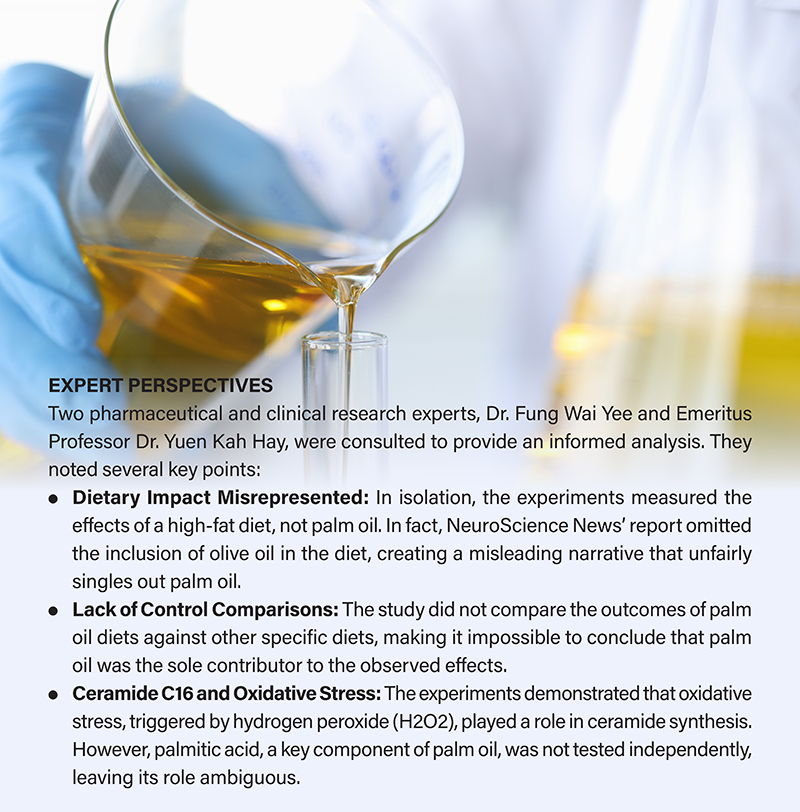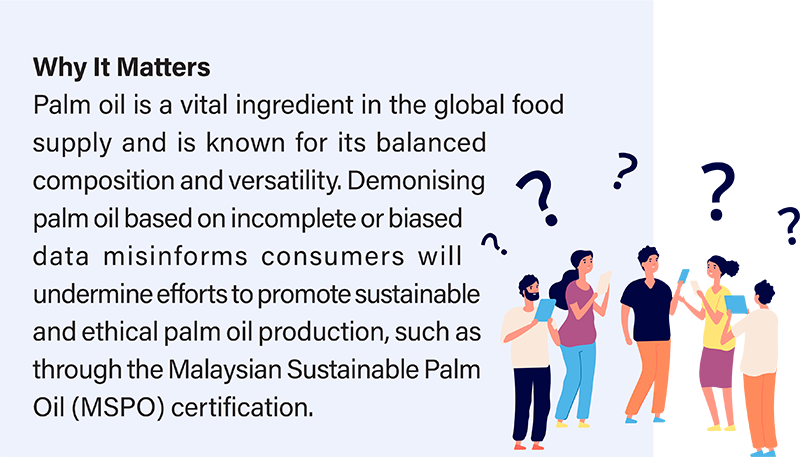Debunking Misconceptions: Understanding Palm Oil and Its Role in Health
Two pharmaceutical and clinical research experts provide their perspectives in an informed analysis of a recent study regarding palm oil that warrants a closer look at the findings.

A recent article published on NeuroScience News.com by Shawn Rea (CUNY) claimed that a palm oil-rich diet may exacerbate multiple sclerosis (MS) symptoms through a neurotoxic pathway. Based on the research paper titled “Neuroprotective effect of neuron-specific deletion of the C16 ceramide synthetic enzymes in an animal model of multiple sclerosis” by Amatruda Mario and colleagues, this assertion warrants a closer look to clarify the findings and provide balanced information.
What the Research Explains
The study explored the role of ceramide C16, a fat molecule found in cell membranes, particularly in the brain and spinal cord. While the data highlighted the impact of ceramide C16 on MS severity in mice, it did not establish that palm oil alone worsens MS symptoms. Instead, the experiments examined the effects of a high-fat palm and olive oil diet. The data do not support the claim that palm oil was uniquely responsible for adverse outcomes.

Understanding Palmitic Acid
Palmitic acid is the most abundant saturated fatty acid in humans and animals, and is essential in maintaining tissue integrity. It is found in various foods, including dairy and meat products, not just palm oil. Misrepresenting palm oil as the primary source of ceramide C16 could mislead consumers into believing it is uniquely harmful while consuming palmitic acid from other sources.
The Importance of Accurate Reporting
Scientific studies undergo rigorous peer review to ensure credible findings. However, simplified interpretations in media can often distort the truth, propagating misinformation. In this case, the NeuroScience News article unfairly associates palm oil with negative health outcomes without presenting the full context of the research.

Making Informed Choices
Consumers deserve accurate, balanced information to make informed dietary and lifestyle decisions. By contextualising scientific findings and addressing misinformation, we can empower individuals to choose based on facts rather than fear.

Accurate reporting in palm oil research is paramount as the general public should be provided unbiased information.
Technical input provided by:
Dr. Fung Wai Yee, Expert in clinical research and pharmaceutical technology
Emeritus Professor Dr. Yuen Kah Hay, Expert in biopharmaceutical studies, drug therapy and pharmaceutical technology



